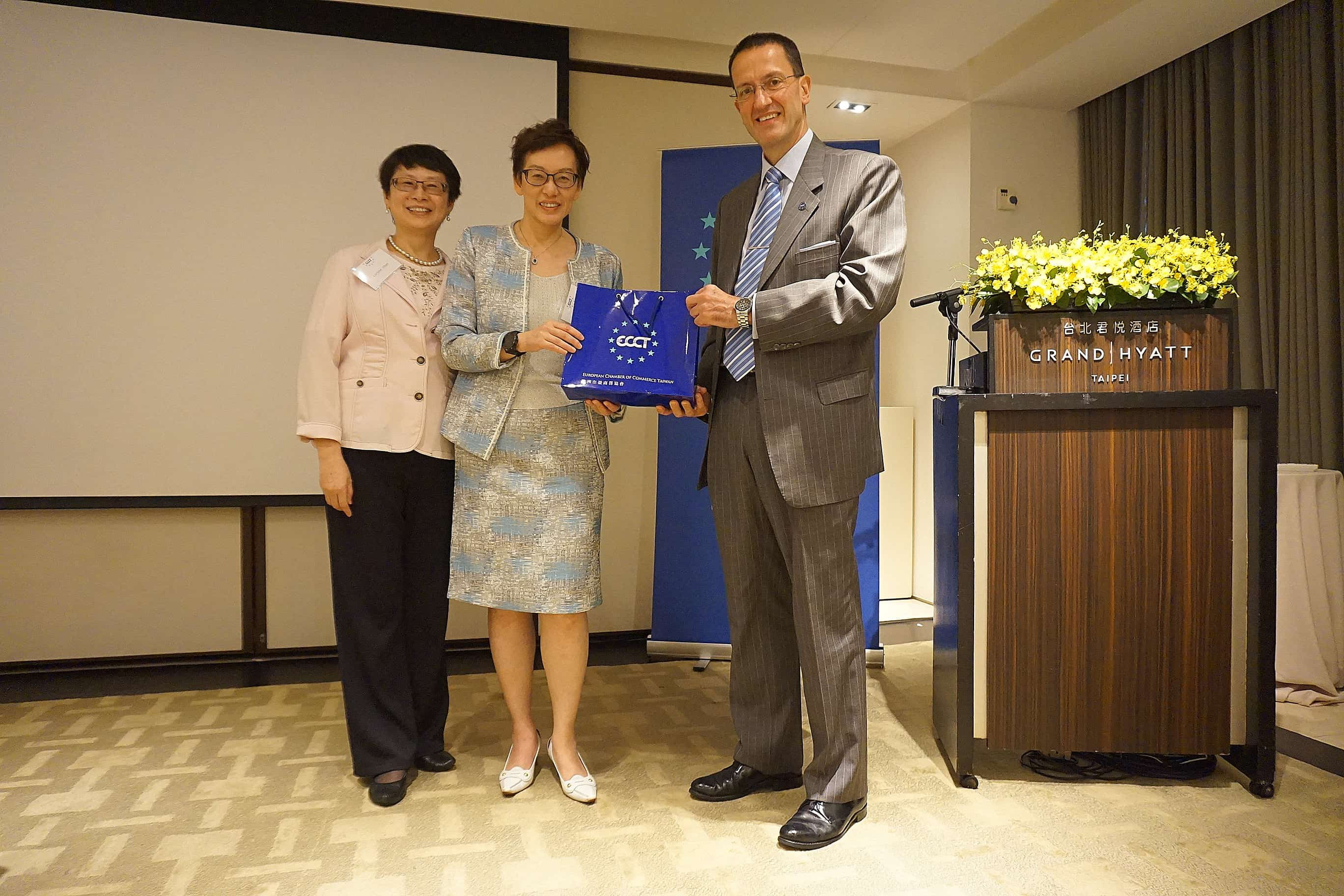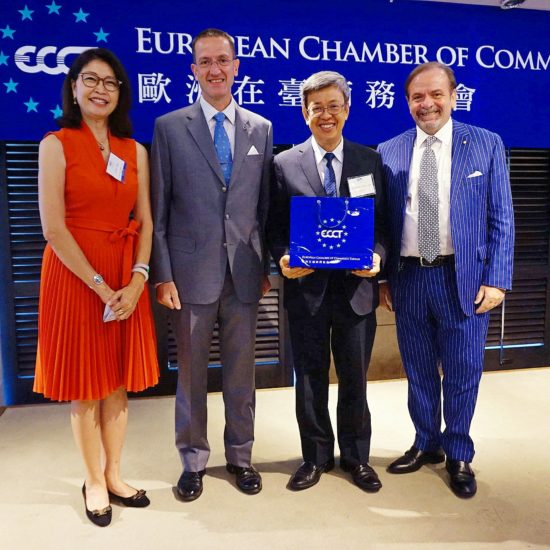Withholding tax lunch

Please refer to this link Tax for the ppt of this presentation.
The ECCT's Tax committee hosted a lunch to give members an update on ways to reduce payments of withholding tax (WHT). At the event Lynn Chen, Tax Partner at KPMG, gave an overview of the current situation based on recent official guidance and actual case studies.
While the government tends to treat payments to foreign companies as Taiwan sourced income (TSI) subject to an expensive 20% WHT, authorities have introduced several schemes for mitigating the tax costs.
Several types of services including product/business strategy development, shared services, group support, consulting, marketing, IT/tech support, training and R&D are subject to Cross-border Service Charges (CSCs). According to the TSI Principle, CSCs are considered as TSI under one of the following circumstances: 1) The services are carried out or completed in Taiwan; 2) The services require the behaviours being carried out within and outside of Taiwan; 3) The services are carried out outside of Taiwan but require the participation and assistance from Taiwan.
There are three main ways to mitigate tax costs:
Tax treaties: In countries that have tax treaties with Taiwan, business profits can be exempted from WHT.
Article 25 Income Tax Act (ITA) allows for a large reduction in WHT for technical services to 15% of the standard 20% WHT if requirements are met.
The government's TSI guidance has offered other schemes to reduce WHT entailing the deduction of costs and expenses and the determination of the onshore contribution rate.
If Taiwan has a tax treaty in place with the respective country, this is normally the preferred option. As long as there is no permanent activity in Taiwan and tax is being paid in the tax treaty country, WHT can be reduced to zero.
In a case example provided by the speaker, a local company engaged a company in the UK to conduct research. Since the activities were all performed in the UK without involvement of staff in Taiwan, it qualified for exemption of WHT. Chen went on to outline in detail the application procedures and required documentation, noting that approval usually takes 8-12 months.
In the second case cited, a local company engaged technical services (consulting and training for the use of an internet security system) from a technical team based in the United States which sent employees to Taiwan to conduct training. Since the US does not have a tax treaty with Taiwan, the next best option was to apply for a WHT reduction under Article 25 of the ITA. In this case the applicant had to prove that the services were not routine in order to qualify. In addition, general management services which do not include technical nature and royalty for use of Intellectual Property Right were not applicable. According to Chen, the tax authority is likely to investigate whether there is any royalty fee, which would not be applicable to Article 25's tax treatment. If there is a partial service fee not applicable to Article 25 and could not clearly distinguish it from the whole service fee, the tax authority may reject the application, or the applicants could try to negotiate with the tax authority.
In a third case cited involving group IT support services, whereby a French company dispatches employees to Taiwan for fewer than 150 days per year, the tax authority split the services into different parts based on their nature in its assessment of WHT treatments.
In a fourth case discussed involving shared services both onshore and offshore of HR, finance, legal and compliance services, Chen noted that since there were various types of group support, the tax officer asked exactly what kind of services are provided and whether they conform with the agreement content. In addition, in cases like this, tax officers may request the service provider's organisational chart to ensure that the service provider has the personnel in place to provide the services in question. In addition, tax officers may challenge the mark-up rate applied to the service fees and only grant approval for the portion of service fees applying the arm's-length mark-up rate determined by the tax officers.
She added that things are a little different if the service provider is in Singapore since Taiwan's tax treaty with Singapore differs from other treaties. In particular, under Article 7 of the Taiwan-Singapore Treaty, business profits exclude fees or other remuneration derived from the management, control or supervision of the trade, business or other activity of another enterprise or concern.
The speaker concluded by emphasising that WHT is an issue requiring proactive management and patience and that it is very risky to make your own favourable interpretation of WHT rules, since, if you are overruled, you may be liable to fines. Therefore she advised, for material transactions, it is better to seek a ruling even if you think you have a good non-TSI position. Otherwise, penalties up to 100% of the underpaid WHT would be imposed if the tax authority later disagrees with the position.
In addition, when applying for a ruling or WHT reduction, she advised to help the tax officers fully understand the business and transaction background, and provide adequate supporting documents.

